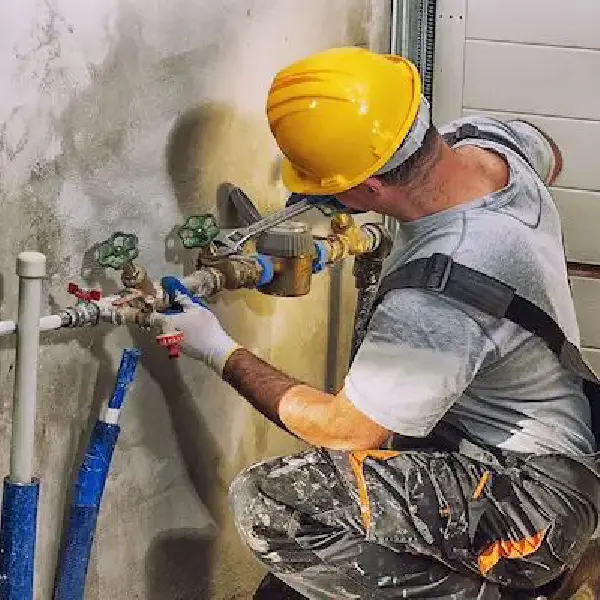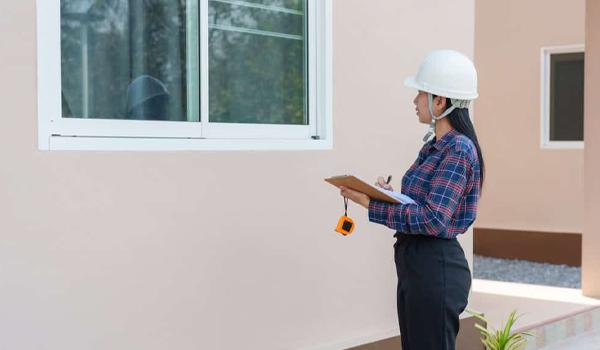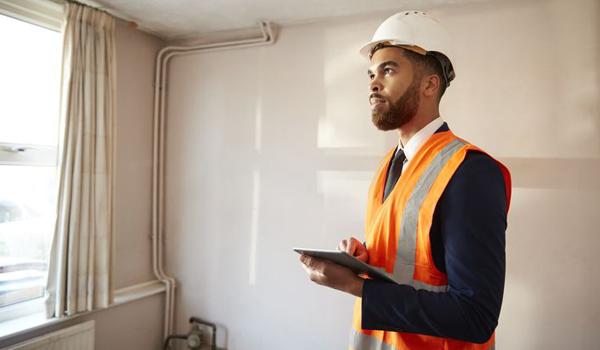Commercial Vs. Residential Inspections

Adding commercial inspections to your skill set is an excellent strategy to grow your firm, as many home inspectors do not assess commercial buildings.
However, you should be aware that house and business building inspections differ significantly before moving further.
The main distinctions between commercial vs residential home inspection are covered here. We have contrasted these two kinds of inspections in different contexts in this post.
The Differences Between a Residential and a Commercial Inspection
Compared to residential inspections, commercial inspections are more thorough and intricate, encompassing a larger range of systems and parts.
Home inspections encompass key systems like HVAC, plumbing, electrical, and roofing and are mainly concerned with the structural integrity and operation of the house.
In general, they take less time and are less complicated than commercial inspections.
Below we have compared the commercial vs residential home inspection in Canada in terms of various scopes.
Before you continue reading, pay attention that having enough knowledge about home inspection is necessary to understand this topic better.
If you do not know what it is, click on the what is home inspection article to find out.
1. Scope of Inspection
The scope of inspection for home inspection is mostly a single-family home's usability and structural soundness. It includes the inspection of:
- Crawlspace and foundation, if applicable
- Drainage systems and roofs
- Siding and walls outside
- Doors and windows
- Plumbing systems, encompassing leaks and fittings
- electrical systems, which comprise outlets, wiring, and panels
- HVAC (heating and cooling) system
- Insulation and the attic
- Interior finishes (floors, walls, and ceilings)
- Appliances (large appliances, such as dishwashers and ovens)
On the other hand, commercial inspection includes a larger range of building systems and capabilities; depending on the type of property, this may need specific knowledge. It includes the inspection of:
- Base and structural components
- Roof systems (including drainage and intricate structures)
- External walls and siding components
- Doors, windows, and security measures
- Waste management and high-capacity plumbing systems are included.
- Electrical systems (often requiring specialist equipment and greater voltage)
- HVAC systems (complicated systems made for specialized uses and huge spaces)
- Systems for life and fire safety (sprinklers, alarms, etc.)
- Features for accessibility (ramps, elevators, etc.)
- Environmental elements (such as possible lead paint, asbestos, etc.)
- Compliance with zoning laws and building codes
- Specific systems based on the kind of property (industrial ventilation systems in a warehouse, for example)
2. Differences in Building Types
Home inspection:
The wide range of building types that are seen in the business sphere is the primary distinction between home and commercial inspections.
Homes differ from one another in terms of age, size, and style, but they all have the same basic systems and structure.
In this examination, single-family homes, townhouses, condominiums, and smaller multi-unit buildings are the typical building types.
Typically, the examination may be completed efficiently by a single inspector who has a thorough grasp of household systems.
Commercial inspections:
There is a wide variety of building styles found in commercial buildings, each with its own special traits and complexity.
Commercial inspections, for instance, examine office buildings, retail establishments, warehouses, industrial facilities, hotels, restaurants, hospitals, schools, etc.
3. Structural Considerations
The structural integrity of the building is assessed during both residential and commercial inspections, however, there may be substantial differences in the considerations and complications.
Home inspections:
A single-family home's foundation, frame, roof, and general stability are the main points of emphasis.
Common Evaluations include:
- Water damage, settlement, and fissures in the foundation.
- Connections, framing materials, and any structural problems.
- Roof condition, drainage systems, and flashing.
- Indications of insect infestation, wood decay, or moisture ingress.
Commercial inspections:
Because there are many different kinds of buildings and possible structural difficulties, structural concerns for commercial properties are sometimes significantly more complicated.
Common evaluation includes:
- Intricate structural systems seen in industrial or high-rise structures.
- Capacity to support loads and possible overload issues.
- Adherence to certain engineering norms and construction codes.
- Possibility of dangerous substances like asbestos present.
- Respect for earthquake safety laws and seismic stability (in earthquake-prone locations).
4. Mechanical Systems Inspection
The functioning of the building's many mechanical systems is assessed in both residential and commercial inspections, however, the extent and complexity might vary greatly:
Home inspections:
The primary focus of a single-family home is on the safety and operation of critical systems.
The common systems examined:
- Plumbing systems, which cover drainage, water pressure, and leaks.
- Electrical systems, which include outlets, wiring, panels, and other safety risks.
- HVAC system (capabilities for both cooling and heating).
- Large appliances (dishwashers, stoves, etc.).
Commercial inspections:
Commercial properties may have significantly more intricate mechanical systems, necessitating specialist knowledge for an accurate assessment.
The common systems examined:
- Large water quantities are handled by sophisticated waste management networks and piping systems.
- Greater voltage electrical systems, specialized machinery, and possible industrial uses.
- HVAC systems made for big areas that require certain ventilation and temperature control requirements.
- Systems for fire and life protection (alarms, sprinklers, etc.).
- Systems of security and procedures for controlling access.
- Specialized systems based on the kind of property (commercial cooking equipment, industrial ventilation systems, etc.).
5. Electrical Systems Examination
The electrical systems in the building are examined during both residential and commercial inspections, however, there are several notable differences in the complexity and dangers associated with each kind of inspection.
Home inspections:
The focus here is mostly on a single-family home's electrical system's performance and safety.
Common Evaluations:
- Systems for bonding and grounding.
- State of the outlets, wiring, and electrical panels.
- Function of GFCI and AFCI breakers.
- Indications of overloading or possible fire risks.
Commercial inspection:
Due to their greater voltage, specialized equipment, and possible industrial applications, commercial electrical systems are sometimes significantly more complicated.
Common evaluations:
- Intricate distribution networks and electrical panels.
- Systems of three-phase electricity for industrial machinery.
- Systems for backup power in case of emergency.
- Specialized controls and systems for lighting.
- Certain places should have ground fault circuit interrupters (GFCIs).
- Compliance with more stringent safety and electrical norms.
6. Plumbing and HVAC Evaluation
Plumbing and HVAC system operation is assessed in both residential and business inspections; however, the breadth and possible difficulties vary significantly:
Home inspection:
The main focus is on the plumbing system's functionality and safety in relation to the single-family home's water supply, drainage, and sewage systems.

image sourced from here
Typical plumbing system assessments:
- Leaks in fixtures, appliances, and pipes.
- Drainage flow and water pressure.
- Boilers' or hot water tanks' state.
- The functioning of sewer lines and any obstructions.
However, when it comes to HVAC, the main priorities are the single-family home's heating and cooling system's functionality and safety.
Typical HVAC system assessments:
- The functionality of the heating and cooling system is often evaluated in an HVAC system.
- The state of the ductwork and airflow.
- Symptoms of deterioration or possible leakage.
- Checks for carbon monoxide safety.
Commercial system:
Larger water volumes, extensive waste management networks, and perhaps dangerous products are handled by commercial plumbing systems, which are sometimes significantly more complicated.
Typical plumbing system assessments:
- Intricate networks for distributing water that include backflow protection.
- Methods for managing trash with large capacities and specialized treatment facilities.
- Possible existence of dangerous elements, such as tainted water supplies or lead pipes.
- Compliance with more stringent environmental and plumbing laws.
Conversely, in HVAC inspection the heating and cooling system's functionality and safety in a single-family home.
Typical HVAC system assessments:
- Features for cooling and heating.
- The state of the ductwork and airflow.
- Symptoms of deterioration or possible leakage.
- Checks for carbon monoxide safety.
7. Code Compliance
While checking for compliance with pertinent building codes and safety requirements is a common task for both residential and commercial inspections, there can be notable differences in the complexity and particular codes that apply.
Home inspection:
Residential construction rules that guarantee a single-family home's safety and habitability are the main focus of residential inspections.
The International Residential Building Code (IRC) and local modifications are examples of typical codes.
Commercial inspections:
A greater variety of construction norms and regulations unique to the usage and occupancy of commercial structures are applicable.
Examples:
- For general construction, the International Building Code (IBC) is one example.
- NFPA 101, the Life Safety Code, provides fire safety precautions.
- Recommendations for accessibility such as the Americans with Disabilities Act (ADA).
- Codes unique to the building industry for particular building kinds (e.g., restaurants, healthcare facilities).
8. Specialized Equipment and Tools
While certain common instruments may be used for both residential and commercial inspections, the complexity of commercial premises frequently calls for the employment of more specialist equipment:
Commonly Used Instruments for Home Inspections:
- Ladder, flashlight, and moisture meter
- Thermometer with GFCI tester
- Combustible gas detector
Commonly Used Instruments for Commercial Inspections:
- For assessing exact heights and structural integrity, use levels and total stations.
- Concrete scanners for evaluating the state of concrete buildings.
- Boroscopes to examine a structure's inside parts.
- Water pressure and flow rates may be measured with flow meters.
- Electrical testers for high-voltage systems and specific circuits.
- HVAC system analyzers to evaluate effectiveness and performance.
- Specialized instruments for examining specialized systems and industrial machinery.
9. Cost Comparison
Commercial vs residential home inspection costs might differ greatly for a number of reasons:
- Building Size and Complexity: Naturally, larger and more intricate commercial buildings will need a more thorough assessment, which will raise the cost.
- Inspection Scope: The particular services needed, including further testing or specialist inspections, will affect the final price.
- Inspector Expertise: Inspections that need specialist inspectors with a profound understanding of particular building types or systems will typically incur higher costs.
- Location: Depending on the area and going prices in the market, inspection costs may change.
Average price range:
- Residential inspections: Depending on the property's size and complexity, they typically cost between $250 and $550.
- Commercial Inspections: Depending on the previously mentioned criteria, these inspections can cost anywhere from several thousand to tens of thousands of dollars.
If you need more information about the commercial inspection cost, click here.
Importance of Hiring Qualified Inspectors
It's imperative that you use a certified inspector for your home inspection for a number of reasons:
- Peace of Mind: By spotting any possible issues with the property before you buy it, a comprehensive inspection by a trained expert may offer priceless peace of mind.
- Cost savings: By identifying problems early on, you can save money on future expensive repairs or upgrades.
- Leverage in Negotiations: During discussions with the seller, the inspection report may be used as leverage to ask for repairs or to potentially reduce the purchase price.
- Safety: Potential safety concerns that might endanger you and your family, such as structural flaws, electrical difficulties, or plumbing leaks, can be found by a trained inspector.
Conclusion: Choosing the Right Inspection for Your Property
Deciding between a home inspection and a commercial inspection might be tricky when you do not know which is best for your property.
In this article, we have made it easy. In this post, some of the most important inspections scopes are examined both for home and commercial inspections.
After reading them, you will achieve a clear vision of which one you need; a home inspection or a commercial one.
- In this post:
- The Differences Between a Residential and a Commercial Inspection
- Importance of Hiring Qualified Inspectors
- Conclusion: Choosing the Right Inspection for Your Property



